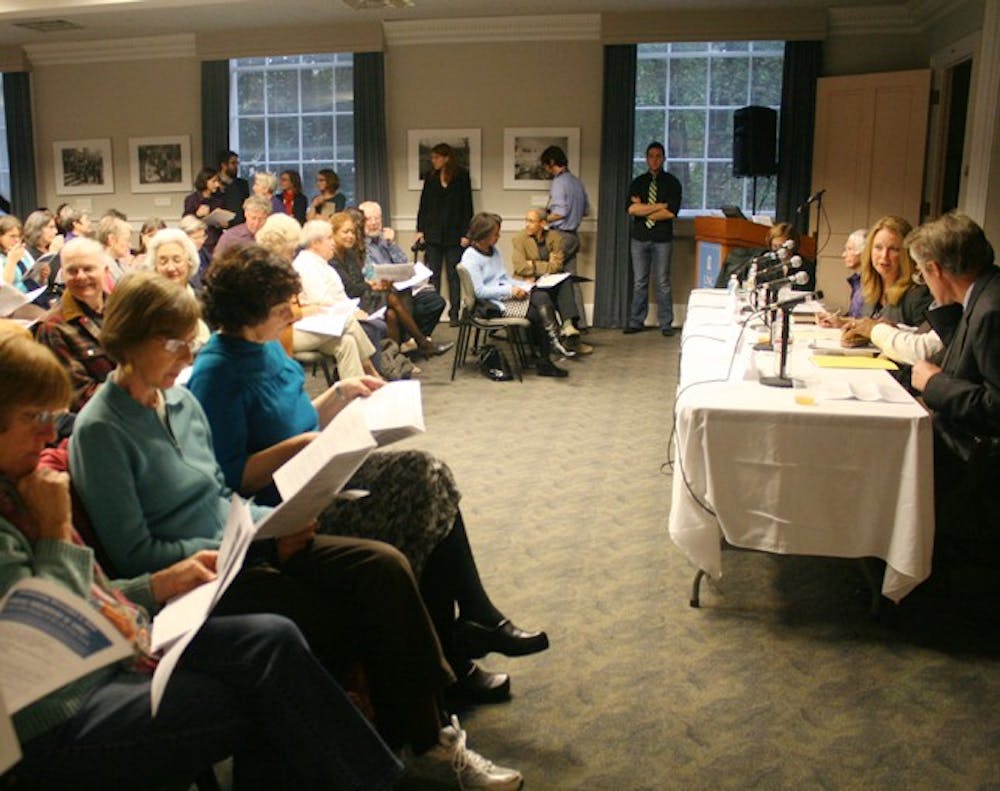Twenty-five years after her death, Pauli Murray received a 100th birthday present Wednesday.
In honor of the deceased activist’s life, a panel of professors spoke on the life and causes of Murray, who was rejected from UNC because of her race in 1938 and Harvard University in 1944 because of her gender.
The talk, sponsored by the Center for the Study of the American South at UNC, the Carolina Women’s Center and the Pauli Murray Project at the Duke Human Rights Center, among others, included a panel of five professors and a moderator who discussed Murray’s legacy before a crowd of more than 100.
“We didn’t think this could go by without celebrating it,” said Barbara Lau, director of the Pauli Murray Project. “Our job is not to just celebrate Pauli Murray but to keep going with her work.”
“We felt it was important to participate in this way because she was rejected,” said Sally Greene, associate director of the Center for the Study of the American South.
Speakers at the event touched on all of Murray’s life but focused on her application and rejection for the UNC graduate program.
“She always worked on the same problem,” said Yale history professor Glenda Gilmore.
“She really believed these challenges were there so she could single-handedly bring civil rights to the whole planet.”
UNC history professor Genna Rae McNeil praised Murray’s directness.




